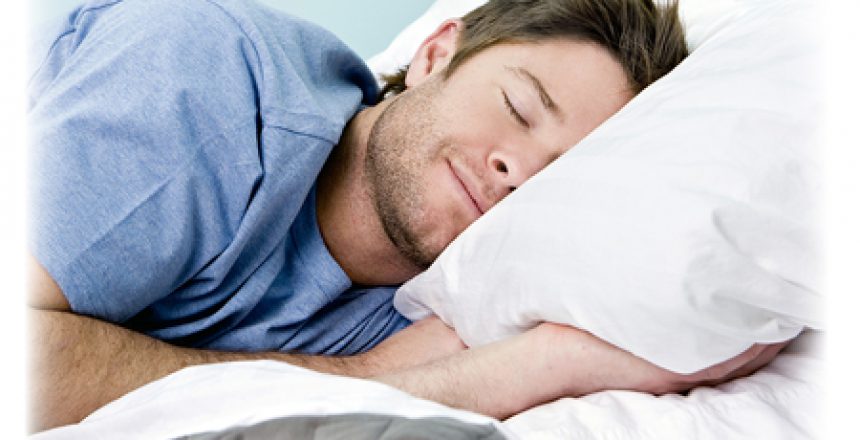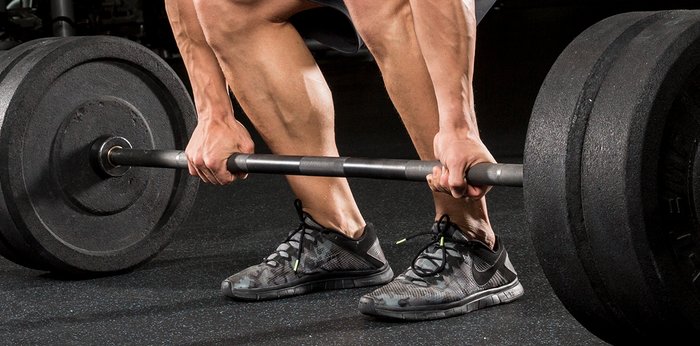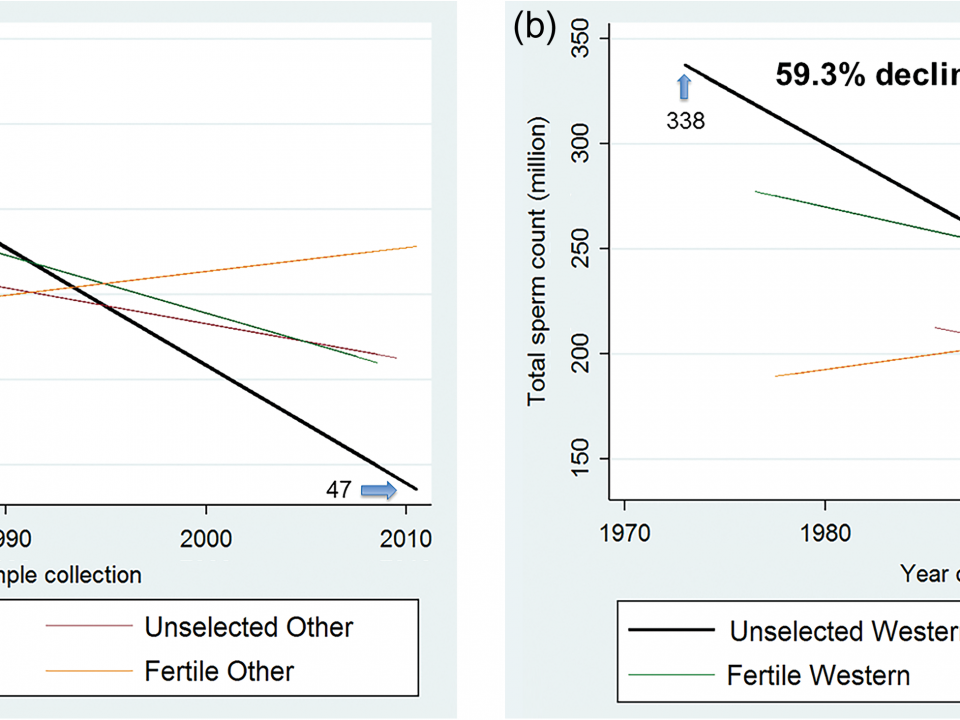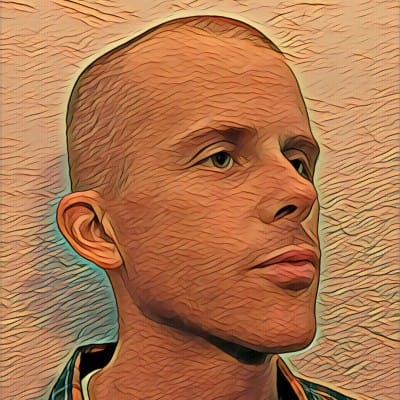How much sleep do you need? Probably less than you think, or were given to believe. Let’s examine the myth of 8 hours sleep.
Sleep and death rates
Lack of sleep causes health problems, ranging from weight gain to fatal accidents.
Sleep times have allegedly decreased in recent years, leading to increases in obesity and diabetes and many other health problems. Is that true?
Contrary to popular belief, in a state of nature, hunter-gatherers sleep only about 6.5 hours, much less than the 8 hours that we think of as the norm. They don’t go to sleep at sundown either, as has been assumed to be the case, but typically stay up about 3.5 hours after it. They don’t take naps, and some of their languages have no word for insomnia. They also suffer little from the diseases of civilization.
Looking at the modern, developed world, it appears that sleep duration has not declined over the past 50 years. This finding challenges “the notion of a modern epidemic of insufficient sleep.”
In summary, it is beyond dispute that disrupted and inadequate sleep are highly prevalent and associated with significant risks, and that experimental sleep deprivation has myriad negative effects. Thus, the notion of a recent epidemic of insufficient sleep, and speculation that this is a primary contributor to modern epidemics of obesity, diabetes, metabolic syndrome, etc., rests largely on the question of whether sleep duration has declined in the last few decades. Consistent with recent reviews of subjective data, this review does not support this notion, at east not in healthy sleepers.
There is no epidemic of too little sleep.
The best data point to determine the optimal amount of sleep is not anecdotes or mainstream news reports, but death rates associated with hours of sleep.
Numerous studies have found that 8 hours of sleep is not only not optimal, but associated with higher death rates.
A prospective study found that sleeping less than 6 hours, and more than 7 hours, was associated with increased death risks. The odds ratio for sleeping 5 hours was 1.15, for 8 hours 1.12, while for 9 hours or more, it was 1.42. “These results confirm previous findings that mortality risk in women is lowest among those sleeping 6 to 7 hours.”
There’s a U-shaped relation between amount of sleep and death rates. See graph below.

The lowest death rates were seen in from 300 to 390 minutes, or from 5 to 6.5 hours. Yes, objectively measured sleep of more than 6.5 hours was associated with higher death rates. The common folk wisdom of 8 hours of sleep isn’t healthy. The risks found in this study were large, with sleep of more than 6.5 hours associated with about a 3-fold increase in risk, and about a 6-fold increase for greater than 8 hours of sleep.
Keep in mind that these results are for objectively measured sleep, not time spent in bed.
Of interest, self-reported insomnia is not associated with increased health risks.
Although these studies show only association and not causation, one of the authors, Dr. Daniel Kripke, argues elsewhere that “the magnitude and consistency of evidence makes a strong case for causality.” Restricting the amount of sleep may be beneficial, analogous to restricting food.
Short-term sleep restriction has dramatic antidepressant effects.
Sleeping pills kill
Sleeping pills are associated with greatly increased death risks.
Sleeping pills increase risks of overdose, cancer, infections, accidents, and depression. The increased risks of infections were found in a randomized controlled trial, so causation is proven. They produce an excess of deaths at night, probably through affecting breathing, i.e. stopping it, or slowing it enough, such that death ensues.
Furthermore, sleeping pills show little or no benefit, either for sleep or health. They may even increase insomnia.
Many doctors prescribe sleeping pills even when they’re not indicated.
The question arises, how much of the association of sleeping pills with increased health risks arises from side effects of the drugs, or from merely increasing sleep time? Many different types of sleeping pills (“hypnotics”) are associated with increased risks, so it seems likely that merely the fact that they may cause harm in part because they make you sleep more.
Conclusion
The folk wisdom that we need 8 hours of sleep, reinforced by mainstream commentary, appears incorrect.
Health problems may be caused or exacerbated by too much sleep.
People who suffer from insomnia or depression who sleep more than 8 hours may benefit by sleeping less.
Sleeping pills kill. Don’t take them.











26 Comments
https://pdmangan.com/sleep-higher-testosterone/ ??! ?
Interesting post. I’m sure it varies according to genetics.
It’s been shown repeatedly than less than 6 hours make you stupid without realising it, and it takes a long time to catch up on the lost sleep. You’re not at full capacity. Maybe 6 works for some people. For me, I feel rested on 7. But when I’m doing heavy squats and other muscle-building exercise, on less than 8-9 I don’t feel at my best.
And, it’s worth mentioning that people who sleep 9 hours may be dealing with health issues that lead them to die younger, rather than the sleep itself causing the harm.
A timely article! I’ve been sleeping about 6 hours for quite awhile, and feeling very well–but worried that I wasn’t getting enough sleep! Now I can relax…
Sleep time is not stable in life. Young people need more, older people seem to need much less. Babies sleep around 16 hours per day.
There is reason to guess at a connection between sleep time and brain reconfiguration, which happens in young people at the highest rate, obviously, as everything they learn is new to them.
In older people – if they REALLY have to learn again like in school, that is, many hours of concentrated learning per day, not just passively reading books, more like advancing one’s math skills seriously over many hours per day or learning vocabulary of a new language or memorizing the whole map of London (as one must do to get a taxi license in London, there are strict exams) – learning so intense that even structural changes in brain structure become visible in MRT – also older people need to sleep longer again, plus roughly 2h per day, IIRC – at least those who are successful with the learning, that is, those who really learn hard, not just recreationally.
Sleep times are also typically longer if a person is sick or injured.
https://en.wikipedia.org/wiki/Sickness_behavior
Note that chronic conditions, especially chronic inflammation (like in obesity) typically lead to this kind of increased amounts of needed sleep – being fat literally steals life-time in terms of wake-time.
Not all sleepers are the same. Some people absolutely need pitch-black darkness for sleeping, otherwise they fail at achieving restorative sleep at all; other people can easily sleep in high brightness.
There is a connection with melatonin release – in many humans sleeping under light exposure the melatonin-excretion, needed for healthy sleep architecture, is hindered.
People usually instinctively know if they need darkness for sleep – the market and usage of sleep masks proves that. Some people suffer from bad sleep architecture by having to visit the toilet at night – not so much because of the sleep interruption, but their melatonin-release is so sensitive that the short amount of mid-sleep bright light will cause increased sleep times or day fatigue – most of those people could be “cured” from that issue by making them visit the toilet at night in darkness.
Now to my most important addendum:
From experiments in sleep laboratories we know how crucially important total silence is for sleep architecture. Even a little noise during sleep affects sleep architecture, immediately visible in ECG, and delayed indicated by longer sleep times and reports of having slept less well, leading to daytime fatigue.
This is important in our modern society – our ears cannot be closed like our eyes, they sense even in sleep and directly feed information to the brain. Which is of course useful, as noise may indicate trouble that should lower sleep depth or even cause waking, for there may be a threat (fire, predator, burglar, screaming baby…). What is not generally known is that chronic noise during sleep of the kind that causes no waking/gaining consciousness again, wreaks havoc on sleep architecture, learning retention and many other measures that are very important – even is causal in inflammation.
If you have to sleep in an environment that allows not for perfect silence during sleep, you will suffer in sleep quality. Traffic, trains, loud neighbors, humming technology … it all lowers sleep quality and physical and cognitive restoration, even hinders learning and lowers IQ.
There is no easy solution to this (perhaps ear plugs?), because the lower people’s social status is, the noisier tends to be their sleep environment. However, this is the first thing I would try to fix somehow, as noise pollution during sleep is usually not recognized by the victim (which is, after all, unconscious), only wondering why they have trouble with feeling well rested after sleep.
If you have trouble with insomnia – exert yourself as extremely, physically and cognitively, as you can,
postpone sleep for a full day (=wake, ideally work hard, through one night + extra day) and then go to sleep normally the next evening. This is often very hard – unpleasurable – but rather reliably fixes many sleeping problems that have no other serious cause.
Outstanding post Montgomery, many thanks for sharing it.
A question about noise: I would imagine that there must be a threshold of noise, primed by evolutionary history, under which sleep is undisturbed. Examples might be the sound of rainfall or the wind whistling through the air, or the gentle rustle of leaves, and so on.
What about the case of someone with tinnitus, a perennial ringing in the ear? I have slight tinnitus, due to noise damage, but to the best of my knowledge it has not affected by wakefulness levels. But I wonder if a more severe case could disturb sleep quality (without the person knowing it).
I would be interested to hear your thoughts, if you would.
Human senses perform badly or even are incapable of sensing absolute intensities; they appear to be evolutionary optimized for sensing changes and the rate of change in sensory inputs.
Example:
Smell – we only notice changes of it. Like, in visiting other people’s flats – we immediately recognize the different aroma of their abode. If we are exposed to it for mere minutes, the sense of smell, the whole sensation that there is something different, is lost completely.
Taste works comparably: A new taste is most intense if tasted anew; the longer you chew something, the more taste sensations tend to vanish (one of the reasons humans desire mixed dishes with novel aromas over the course of a meal).
It also works with human’s keenest sense: Vision.
https://mindhacks.com/2008/11/17/ganzfeld-hallucinations/
https://en.wikipedia.org/wiki/Ganzfeld_effect
Basically, if you put (in this case as practical example) half-spheres of ping-pong balls over your eyes so that for some amount of time what you see is not changing – then you at some point suddenly lose the sense of “seeing” at all. It’s reported as a weird sensation, but basically it works like this: If your brain does not register differences in visual sensory data for some time, it switches off perception of seeing. No change in sensory input = perception that there is nothing at all.
Perhaps audio reception works similar. Consider the
https://en.wikipedia.org/wiki/Shepard_tone
– we perceive it as endlessly ascending or descending tone, but it’s just an illusion worked through our evolved audio-recognition algorithms in the brain.
Uniform noise seems to be also at some point cast out from conscious perception in the brain – but the matter is not trivial: “Uniform” noise actually hardly exists outside a laboratory setting.
For example, a perfect 50Hz-hum of, say, a fluorescent lighting system, may qualify, as it is almost a perfect, time-stable sinus wave (due to the high stability of the electrical grid’s frequency).
But our conscious perceptions cannot qualify such “uniformity” reliably – for example the noise of computer’s cooling fans appears uniform to us – but it is not (it’s chaotic noise, “white noise”, etc.), and it is not processed in the brain as such – constant exposure to fan noise causes changes in ECG, as long as the noise continues – a clean, perfect 50Hz sinus wave, for example, does not – it changes ECG in the beginning, but the effect seems to get smaller over time.
So, perhaps some noise is less bad than other – but from subjective perception alone, we cannot be really know. Therefore, I think it is optimal to try to shut out all noise during sleep, at least.
There is an important exception I need to mention:
Humans exist on a different spectrum of extroversion/introversion. This is not some weak psychology concept, but as of recent is quantitatively measurable, in terms of – noise.
Extroverts need not only other people to relax – they literally need noise.
Introverts are the opposite – they need to relax and concentrate in solitude, and literally silence.
It can be quantified:
Extroverts will perform better at cognitive tests (memory, IQ, reaction speed, etc.) in a noisy environment than in a silent one; introverts perform exactly in the opposite way – their test scores come crashing down if they are measured in a noisy environment.
People know this usually instinctively: Extroverts tend to prefer noise – people, traffic, birds, nature’s sounds, music – during learning/thinking/reading – while introverts prefer, can only concentrate optimally, if all sources of noise are excluded.
This is so reliable a measure that experimental psychology uses this test instead of questioning of habits to determine the degree of extro-/introversion of a person.
I mention this because, at least in the wakeful state, noise pollution may slowly ruin one type person, and not causing any harm to another type of person.
I do not know if for extroverts a higher amount of noise during sleep would be tolerable,
but sleeping laboratory results indicate that everybody suffers in terms of sleep architecture if noise is present at sub-awaking levels during sleep: The optimum level of external noise during sleep generally seems to be zero.
I do not know much about tinnitus, but I know that active processing has to happen in the brain to shut out the hearing of our own heart’s pulse – which is, counter-intuitively, rather loud inside our ears, because the pumping, the pressure wave, is – sound, a mechanical oscillation – and directly picked up by our audio sensors (“hair cells”) – our brain, on some level, perceives our pulse all the time, and we cannot “hear”, that is, perceive it, because our brain’s algorithms actively suppresses it. This function, like any other, can become defective, and people with such defects can suddenly hear their pulse all the time, greatly annoying them (“Pulsatile tinnitus”). Other kinds of tinnitus may be defects in the brain circuitry that neutralize such noise and therefore suddenly produce noise illusions, instead of producing illusions of silence (at least from one’s own pulse) like in healthy subjects.
To make clearer the Ganzfeld effect/avoid misconceptions:
It’s not about putting a lid on the eyes so they see no light and therefore perceive only black – it’s about not changing what they eyes see. Those halved ping-pong balls are translucent (“allow light through”) , but do not allow to discern different features in view.
A more sophisticated version was done with an experimental setup of specialized optics that made sure that even while the eyeball, the pupil, moved around, only one static image was projected into the eye; even microsaccades were compensated for.
Result:
Whatever the image was that was looked at – after a couple of minutes subjects’ vision was “shut off” – they perceived to see nothing at all, anymore, suddenly.
This proves that we do not “see” what is, but only experience “seeing” if the visual input is constantly changing – if only from changes of perspective by microsaccades.
Interesting. I suffer from tinnitus. 99% of the time it does not bother me, but it is extremely distracting/annoying when I try to sleep and the room is quiet. That has lead to me using a fan for white noise to cancel out the tinnitus, although I recently added a window unit, so I could cut down on cooling the whole house, and keep my room quite while I sleep. 15+ years of night shift has left my cycle pretty screwed up though. I am back on day shift, and need to kick the sleeping pills, but, not easy.
What is healthy people need less sleep but more sleep is needed for unhealthy people
I am one of those fellows whose sleep suffers from having to pee during the night. I make it a point to go to the bathroom in the dark, but I still I have trouble getting back to sleep afterwards. I typically wake up to pee after about 4 to 5 hours and I almost never feel like I’ve had enough sleep at that point. So when I’m working (I work in a job that requires a lot of physical activity), I make it a point to spend 8 hours in bed whether I’m sleeping or not, then I don’t suffer too much during the day. I think if I could only stop having to pee during the night, I could probably get by on 6.5 to 7 hours of sleep every night. Doctor says my bladder has gotten smaller with age, but I’m still wondering if anyone can point me toward resources or remedies that might help there?
I do not know if this would work:
I’ve always been a “heavy drinker”, 3 to 12 liters of water/tea per day.
Yep, those 10+ liters a day were excessive, but the result of an autoimmune liver disease which I coped with somewhat by drinking almost literally a bucket of green tea per day.
Now I’m better, but I keep the habit of drinking 5+ liters a day.
The point: My bladder is very voluminous.
In hospital, after surgery, they have you urinate in those “bed flasks” or “urine bottles”. They are pretty big.
Well, I was the 1st patient they ever had that needed a 2nd one …
Either I am born with an unusual bladder, or the years of drinking really much have made my bladder more voluminous. If the latter is the case, then others should perhaps be able to increase the capacity of theirs, too. Maybe you could be helped by starting to drink really much, especially before the evening, for some months, and see if you can sleep through then. After all, the basic characteristic of us organisms is that we can adopt ourselves to changes in the environment, even intra-generationally if the change is not too great or too sudden…
Also relieved that my 6 hours (with no alarm) is healthy. But issue of hypnotics is tough: Dosage? Frequency? Hard to tell from the link. I avoid them, but sometimes overseas travel and jet lag can be big challenges.
Sleep needs vary between individuals. I typically need about 6.5 to 7 hours per night of sleep. However, I have friends who need up to 8.5 hours per night.
I just read the source article. What it says about sleeping in declining temperatures during the night matches my own experiences. I live in Portland area of Pacific Northwest. Most of the time we lived in houses without central climate control. Even now in a house with central heating, we never have the heat on at night, even in the winter. Thus I sleep well in a cold room and one that gets colder through out the night, and don’t mind getting up with it cold in the morning. In contrast, I do not sleep well if it is hot.
Abelard, agree with sleeping in unheated bedrooms in cold water flats, a common practice in frigid East Prussia like Minnesota where traditionally we used 6 inch thick feather filled comforters to conserve body heat. The covers were aired out daily by hanging over window sills..
A physicist has calculated heat losses when lightly covered in cool rooms as a simple way to supplement dieting etc keeping in mind that 3500 cal equals 1 lb body fat potentially lost in 1 week depending on heat loss. Ditto for swimming or even less effective wading for 1/2 to 1 hr where your body at 98F transfers body heat to pool water at about 80-84F at the local Y.
8 hours of sleep for testosterone, 6.5 hours for longevity?
“Keep in mind that these results are for objectively measured sleep, not time spent in bed.”
Can you elaborate on this point? Perhaps mentioning what the average time to fall asleep is, what the average period of wakefulness is over the course of a night, etc?
This would help readers guage how much time they should actually spend in bed.
Robert, all those likely vary a great deal from person to person, and in the same person over time. The only general rule is that you should be sleeping when in bed. If you’re not, you’re spending too much time there.
Sleeping during hours of darkness, up to 10 hrs depending on latitude, was traditional before electric lighting since little useful work could be done in light from candles or oil lamps, except reading or writing.
And in Bible times most work stopped from dusk to dawn or nearly 10 hrs. Nighttime was from 6 pm to 6 am divided in 4 x 3 hr shifts for guard duty or watchmen.
Sleeping during hours of darkness, up to 10 hrs depending on latitude, was traditional before electric lighting since little useful work could be done in light from candles or oil lamps, except reading or writing.
And in Bible times most work stopped from dusk to dawn or nearly 10 hrs. Nighttime was from 6 pm to 6 am divided in 4 x 3 hr shifts for guard duty or watchmen.
We can all agree that there are variables, but my take-a-way is in the title of the article itself. A great many people have felt that something is wrong with their sleep habits because they “only” get 6.5 or 7 hrs sleep, when in fact they may have been getting the optimum amount all along. It’s a relief to know this.
Thanks very much.
Thanks, TeeDee. Daniel Kripke, the eminent sleep researcher whose work I featured here, makes exactly that point. If you sleep only 6 or so hours, don’t worry about it. You’re fine.
Research suggests that kids overusing interactive screens are not getting sufficient quality sleep. Don’t you think you should make it clear that your suggestions may not apply equally to everyone now that there is a potent new variable in the mix…which will take decades to make its way into the type of research you feature here? See the writing of Victoria Dunckley MD.
This is a helpful article thanks. I just read a couple of articles in a big newspaper’s site, one suggesting we might not be sleeping enough (they mentioned some book, Why We Sleep??). Another of their articles mentioned people (clean sleepers, apparently!) who aim for 10 hours per night, which seems crazy. I remembered seeing this article, a while back and thought I’d read it again, thanks.
My sleep has declined slightly in the last year 6 + 1/2 to 7 1/2 hours a night. I feel good though, and I get important stuff done with those extra morning hours. I was a bit concerned though, I don’t want to get sick through not sleeping enough. So much confusing information around, very difficult to assess what to do, Thanks for taking the time to give your perspective on this stuff, I find it valuable.
I suggest reading ‘Why We Sleep’ by Matthew Walker to get a rounded perspective on the main study cited by PD in this blog post . Walker makes the points that: 1) the hunter gatherers in the study actually gave themselves a sleep opportunity of 7 to 8.5 hours, even though they weren’t able to sleep for the whole of that time 2) that it is erroneous to conclude that just because they slept 6.75 hours, that 6.75 hours is therefore all the sleep that human beings need for optimal health and longevity 3) The average lifespan of these hunter gatherers is 58 years, despite the fact they do not east processed foods, are not obese, and do not lead a sedentary lifestyle. 4) We would expect that 6.75 hours would deliver this kind of shortened lifespan – based on epidemiological data. 5) Infection is one of the main causes of death in these tribes. Weak immune systems are one of the main consequences of insufficient sleep. 6) These hunter gatherers have many days when food is short. – and there we know that reduced food consumption leads to reduced sleep. Overall Walker calls the conclusion widely reached from this study that humans need less than 7 hours sleep “a wishful conceit and a tabloid myth”. His book is very thorough -he knows the data. He makes a very persuasive case, based on the data, that humans need 8 hours sleep for optimal functioning, health and longevity. It is worth reading.
I need to get more sleep hours then! OMG! I don’t want to die young!